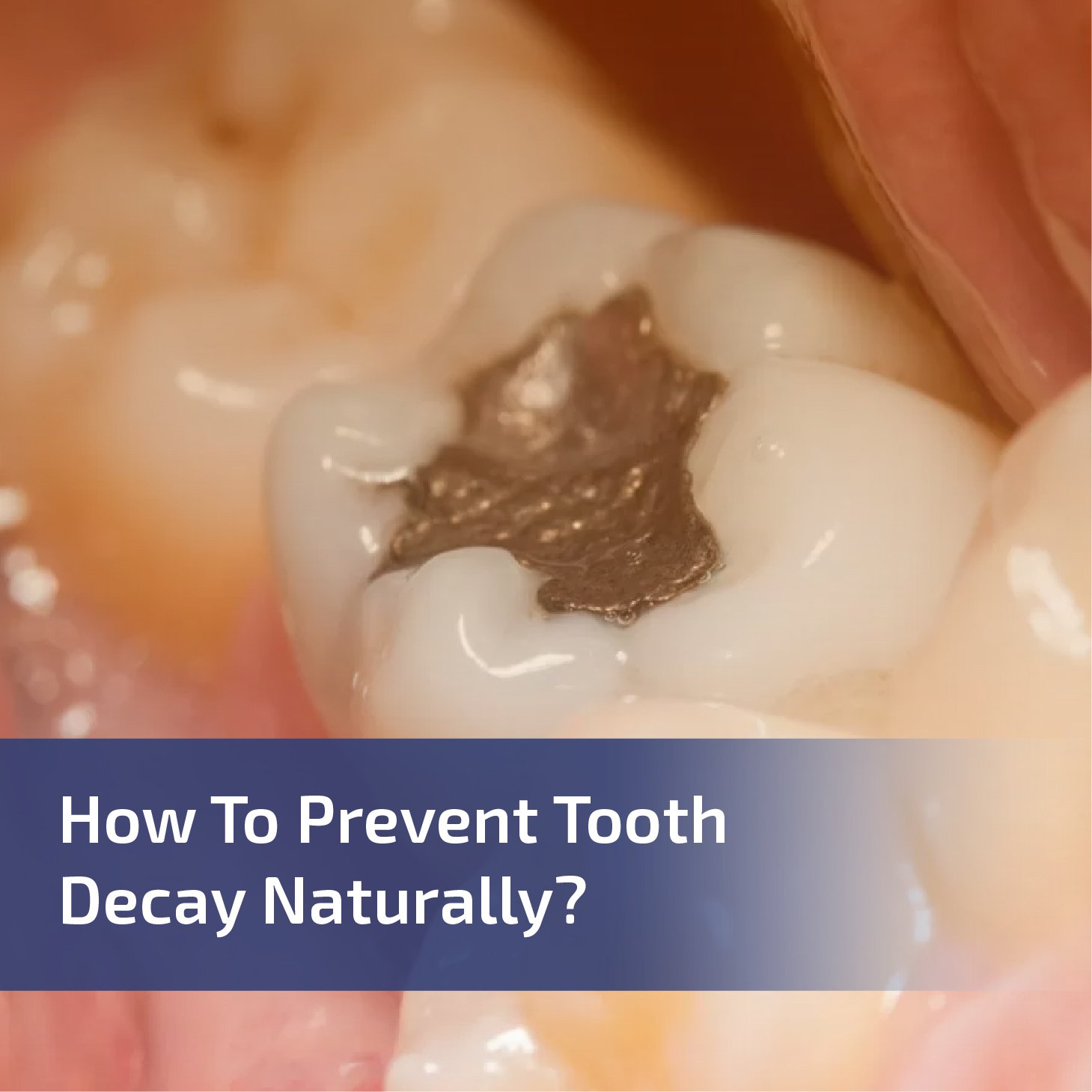
Tooth decay, an unwelcome menace for many, is not just about those painful cavities or unsightly tooth damage. It’s a reflection of overall oral health. However, the power to thwart tooth decay lies not only in regular dental check-ups but also in nature’s bounty.
In this guide, we’ll journey through how to prevent tooth decay naturally, providing a holistic approach to impeccable oral health.
Understanding Tooth Decay
Tooth decay, commonly known as cavities or dental caries, is one of the most common health problems worldwide. Tooth decay refers to the structural damage that occurs when bacteria in the mouth produce acids that eat away at the tooth. If left untreated, the decay can grow in size and depth, affecting not just the outer layer of the tooth (enamel) but also the inner layer (dentin) and can even reach the pulp, leading to pain and potential tooth loss.
The trouble starts when these harmful bacteria feed on sugars and starches we consume, producing acids as a byproduct. This acid, combined with saliva and food particles, forms a sticky film known as plaque.
If not promptly removed, this plaque clings to teeth and starts eroding the tooth’s protective outer layer, the enamel. If untreated, this decay can penetrate deeper layers of the tooth, such as the dentin and pulp, leading to increased pain, potential infections, and even tooth loss.
What are Some Natural Preventive Methods for Tooth Decay
Nature, in its abundance, offers a plethora of options to bolster our defenses against tooth decay.
A. Dietary Adjustments
Consuming a Balanced Diet:
- Strong teeth require calcium and phosphorus. Incorporating dairy, seeds, and green vegetables can be beneficial.
- Sun exposure and vitamin D-rich foods ensure that calcium is efficiently used by our bodies.
- Reducing Sugar Intake:
- Even seemingly healthy foods can contain sugars. Always check the nutritional label.
- Natural sweeteners like honey or maple syrup, though still sugars, can be less detrimental in moderation.
- Think of apples, carrots, or celery as nature’s toothbrushes.
- These foods encourage saliva production, which neutralizes acids and washes away food particles.
B. Proper Oral Hygiene
Brushing with Fluoride-free Toothpaste:
- Ingredients such as neem or coconut oil offer antibacterial properties.
- Spending at least two minutes, ensuring all quadrants of the mouth are covered, can make a world of difference.
- It’s the unsung hero of oral care. Daily flossing prevents plaque buildup between teeth.
Natural Mouthwashes:
- Clove or peppermint oil-infused water can freshen breath and combat bacteria.
- This ancient Indian remedy involves swishing coconut oil in the mouth for several minutes, potentially pulling out toxins and improving gum health.
C. Limiting Acidic and Sugary Intakes
- Knowing the pH of what you consume can help you balance acidic foods with alkaline ones.
- Herbal teas, especially green or chamomile, or simply lemon-infused water can be refreshing and less harmful.
D. Saliva Production Boost
- Chewing sugar-free gum is a great way to kick up saliva production post meals.
- High-fiber foods like whole grains or nuts keep the salivary glands active.
- Regular water intake ensures a well-lubricated mouth, keeping harmful bacteria in check.
E. Nature’s Remedies
- Green Tea is a natural fluoride and antioxidant properties can help strengthen teeth and reduce bad bacteria.
- Xylitol is a sugar substitute that not only sweetens but can reduce bacterial growth.
- Rinsing with sage or thyme-infused water can offer antimicrobial benefits.
What are the Common Causes of Tooth Decay
Tooth decay, often referred to as cavities or dental caries, arises from multiple factors that interplay within the oral environment. Here are the common causes of tooth decay:
1. Poor Oral Hygiene:
The most significant contributor to tooth decay is inadequate oral care. Failing to brush and floss regularly allows food particles to remain on the teeth, which bacteria then break down, producing harmful acids in the process.
2. Consumption of Sugary and Starchy Foods:
Bacteria in the mouth feed on sugars and starches, producing acids that weaken tooth enamel. Hence, a diet high in sugary snacks, candies, sodas, and carbohydrate-rich foods can promote decay.
3. Plaque Formation:
Plaque, a sticky film of bacteria, forms on your teeth and gums shortly after eating. If not removed, it can harden into tartar, making it more challenging to clean the teeth and creating a shield for bacteria.
4. Lack of Fluoride:
Fluoride is a mineral that strengthens tooth enamel and makes it more resistant to acid attacks. A deficiency in fluoride, whether from not using fluoridated toothpaste or not drinking fluoridated water, can increase the risk of decay.
5. Acidic Foods and Drinks:
Consuming foods and beverages with high acidity, such as citrus fruits, tomatoes, and sodas, can erode tooth enamel over time, making teeth more prone to decay.
6. Dry Mouth:
Saliva acts as a natural cleanser, helping to neutralize acids and wash away food particles. Conditions or medications that reduce saliva production can increase the risk of cavities.
Conclusion
Oral health is a vital component of our overall well-being, influencing not just our smiles but also our confidence, digestion, and even heart health. Tackling tooth decay naturally is a blend of consistent oral care practices, dietary mindfulness, and leveraging nature’s remedies. As we integrate these steps, we’re not just preventing decay but ensuring a foundation for lifelong oral health. Your radiant, natural smile awaits!